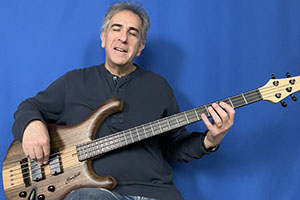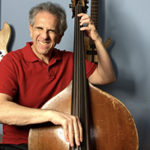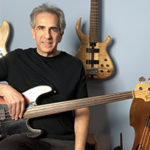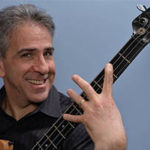And don’t skate over the “easy” stuff. It’s important too!
By Jon Liebman
Week of January 10, 2022
You’ve always wanted to learn to play an instrument, and you think bass might be the right choice.
First off, that’s great. I may be a little biased, but I think the bass is the best instrument of them all. It might not be exactly what you think it is, though, so be sure to make your decision carefully.
Are you learning bass for the right reason?
Please don’t learn bass because you want to be the next Les Claypool, Victor Wooten, Billy Sheehan, or Jaco Pastorius. If you get to the point where you can do what they do, good for you. But don’t let that be your primary focus when it comes to learning bass.
The bass player has a specific role in a band, and, unfortunately, far too many people get it wrong. Playing bass is not about dazzling everyone with your jaw-dropping chops. Your job as a bass player is to lay down the groove for the band and make the music feel good.
I had a great Zoom talk with the “Fretless Monster” himself, Tony Franklin (Blue Murder, Whitesnake, Kenny Wayne Shepherd), published as this week’s FBPO interview. When we got to talking about what makes a good bass player, Tony raised some excellent points, not the least of which was subtleties versus acrobatics.
“A lot of the time, people want to get into the acrobatics,” Tony says. “They want to get into the clever stuff,” which is never a good idea, right off the bat. Rather, he says, it’s important to lay into groove, giving the music what it needs. To illustrate the point, Tony cited the Temptations classic, “Papa Was a Rolling Stone.”
“It doesn’t change, for six and-a-half minutes,” he observes. “And yet, it’s hypnotic, it’s powerful, it’s sexy…”
A lot of aspects of playing bass seem easy, a no-brainer, like anyone can do them. But the subtleties, as Tony mentions, are vitally important.
“You’ve gotta stick it down to the basics,” he says. “The consistency of the tone, the timing, the awareness of the meter, and just really nailing that.”
The “easy” stuff: It’s harder than it looks!
If you want to learn bass and you want to play it well, don’t overlook the importance of those things. “That, to me, is what is missing from a lot of wannabe players,” Tony says. “They want to get into the fancy stuff (but) you don’t run before you can walk.”
In other words, first learn to do it well, then practice doing it consistently well. Some of the most iconic bass lines may sound like they’re easy to play, but bringing out the nuances is a big part of what separates a great bass player from the rest.
Look beyond the notes
“Yeah, learn a classic bass line,” says Tony, “but learn what it is that makes that song work, and how the fingering works, and how they play it to get that consistency of tone, and how they move their fingers around.”
The more you listen to and analyze great bass lines by James Jamerson, Paul McCartney, Bernard Edwards, and other phenomenal players, the more you’ll discover those subtleties, and the more you’ll appreciate what they’ve done.
“Don’t just play it just to play a song,” Tony says. “Learn what it is that makes it great, what makes it groove, and makes people want to hear it again and again.”
Have a thought on the subject? Leave a comment below and let me know what you think. In the meantime, watch my interview with Tony here.






I bought a bass transcription of Charlie Parker. Tempo is insanely fast. But it’s the most fun I have had in years.
Why I learned the bass….
Well, my friends in high school were a guitarist and drummer. I had always wanted to play, so when they decided to start a band, they decided I would play the bass, and proceeded to teach me. Being a lefty, they thought I should play left-handed, but after the first time holding it, it was awkward, and I became a righty from the start. Remember, this was 1970, and I had to learn songs anchored by the likes of John Paul Jones, Geezer Butler, Tim Bogert, Rob Grange, Greg Ridley, Dennis Dunaway, Mel Schacher…..you get the idea. It was the hardest thing I had ever done, and I poured myself into it. Four years later, I was playing in my first road band. I really learned how to play by working, and doing 20-28 nights of gigs every month for over 2 solid years will either teach you to play or walk away. I learned how to play.
The key, as Kenny Werner puts it, is to always see the next note you play as the most beautiful sound you ever heard – in other words, total presence. No “future”because there is no future. NOW is all we got.
Right on, Grayden. Thanks!